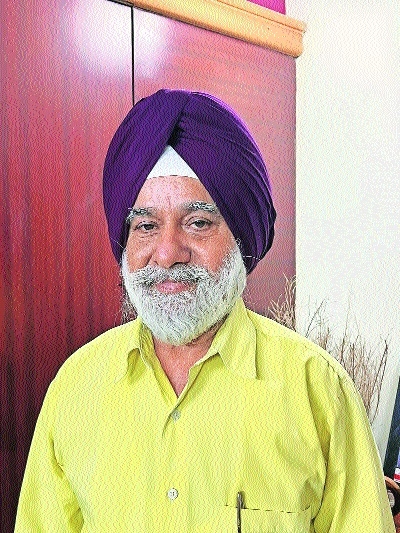Retirement is not about slamming breaks but shifting gears: Anoop Singh
| Date :12-Feb-2025 |

By Vaishnavi Pillay :
View retirement as an opportunity to pursue past passions, says the 64 years ‘young’ Nagpurian who is into
writing, photography, and now sketching
For those nearing retirement, perhaps those in their 50s, that question of ‘now what?’ can loom large. Some may plan for this stage while others may not. A meaningful life in later chapters is not about slamming brakes on everything one does but about shifting gears, continuing to find joy and purpose, and perhaps finally having the time to dive into those passions one has been putting off for years.
Anoop Singh, a 64 years ‘young’ Nagpur resident, embodies this philosophy. He is a man of many talents, including writing, photography, and now sketching. Singh’s articles have graced the pages of ‘The Hitavada’ and continue to do so. In a recent interview, he shared his thoughts on how to live a fulfilling life in one’s later years, navigating this stage with creativity and purpose.
On how the journey of writing for print started, he explained, “Years back, I was particularly drawn to a writer of The Hitavada whose simple yet engaging language resonated with me. He wrote about familiar topics, and I connected with his tone. Also, author Khushwant Singh became a major inspiration,” he explained. He has been contributing to print for roughly eight to ten years. Before this, he worked in pharmaceutical marketing.
“My first article celebrated my favourite film Sholay. From there, I explored a variety of subjects, including bird watching, photography, and even travelogues,” he added.
Asked about the importance of artistic pursuits in later life, he said that having a passion and maintaining enthusiasm is necessary for a fulfilling life, regardless of age.
Singh noted that he considered reading as a solitary pleasure, requiring only a book for companionship.
Similarly, his camera became his pal when he ventured outdoors. His newfound interest in sketching also keeps him engaged and occupied.
His philosophy is to maximise the 24 hours in a day, ensuring that even time spent at home is filled with enriching activities.
He also observed that some retirees lose their sense of purpose and become bored. They succumb to idleness, neglect their appearance, lose interest in even dressing up, confine themselves to homes, and spend most of their time in bed. He said, in contrast, those who remain occupied, find a new purpose after retirement.
Addressing those nearing retirement, he suggested considering past interests, perhaps those set aside due to circumstances, whether from student days or younger years.
“View old age not as a burden, but as an opportunity. Amitabh Bachchan is my ideal. Many people like Bachchan do not need to work for financial reasons, but choose to do so out of passion,” he remarked.
He shared a personal example of finding joy in a simple task like washing a car.
“Even though I have someone who washes my car regularly, I enjoy doing it some days. Even a doctor once described car washing as a de-stressing activity. I take pleasure in polishing the car,” he expressed.
He affirmed the role of younger family members in encouraging elders’ pursuits. He shared a personal anecdote about his dream of visiting Europe, which his son helped him realise, and said that fulfilling dreams can sometimes happen through one’s children.
On the skill of writing, Singh underlined reading as a foundation. He explained his point with the example of a 100-metre race. While the race itself might be over quickly, an athlete’s preparation involves a year of dedicated practice.
Further, he shared a bit about his family. His father hailed from Punjab and his mother was born in Lahore. Three generations of Singhs, including him, his father, and his son, all attended St John’s School. He described his mother as a wise woman, despite having limited formal education. Both his parents instilled in him discipline and honesty, especially in financial matters.
Lastly, speaking on how adversities can sometimes be catalysts for achievement, Singh agreed that life’s ups and downs are essential for shaping one’s story and noted, “Some of the best poem or song lyrics are written by people who have experienced sadness.”
